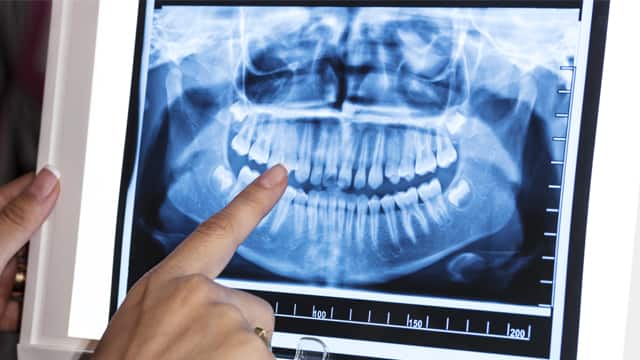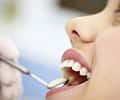How Many Teeth Is Too Many
We've established 32 is the magic number for adults. And the majority of hyperdontia cases aren't severe with just 1-2 extra teeth popping up. The causes of these extra teeth are still unknown, but many cases link to specific genetic factors. A large number of people diagnosed with hyperdontia also live with one of these genetic conditions:
- Ehlers-Danlos syndrome
- Gardner's syndrome
- Down syndrome
- Cleft lip or palate children
What Are The Risks of Hyperdontia
Sometimes, you may have hyperdontia that will require little to no dental attention. And chances are, you won't know you have it until after a dental exam or X-ray. The extra teeth could cause pain, discomfort, and affect your chewing and eventually lead to other oral health concerns, such as:
- Crowded and displaced teeth leading to the blockage of your primary teeth from coming in properly
- Pressure can build in your teeth when a tooth doesn't come in straight, leading to impactions
- Cysts and tumors can form from hyperdontia
- Supernumerary teeth can create malocclusions or issues with your bite, alignment, and jaw position
- The more teeth, the better chance for tooth and gum infection, decay, and periodontal disease
- Facial deformities and speech impediments are possible in the most severe cases
How To Treat Supernumerary Teeth
There are a few courses of action when looking into hyperdontia treatment. Each treatment depends on your age and the number of overgrown teeth. Be sure to speak with your dental or orthodontic professional to go over your options. Possible treatments include:
- Wait and see if there aren't any immediate complications
- Tooth extraction
- Orthodontic solutions
It's impossible to control if and how hyperdontia affects you. What you can do is regularly brush, floss, and see your dental professional so they can assess your oral health and recommend any treatments as necessary. If you do that and keep your teeth, mouth, and smile in tip-top shape — you'll be a winner.
Oral Care Center articles are reviewed by an oral health medical professional. This information is for educational purposes only. This content is not intended to be a substitute for professional medical advice, diagnosis or treatment. Always seek the advice of your dentist, physician or other qualified healthcare provider.
ORAL HEALTH QUIZ
What's behind your smile?
Take our Oral Health assessment to get the most from your oral care routine
ORAL HEALTH QUIZ
What's behind your smile?
Take our Oral Health assessment to get the most from your oral care routine
Join Us
Get the best of your oral health routine and take it to the next level with expert advice, recommendations, products and solutions and special offers.
Join Us
Get the best of your oral health routine and take it to the next level with expert advice, recommendations, products and solutions and special offers.















